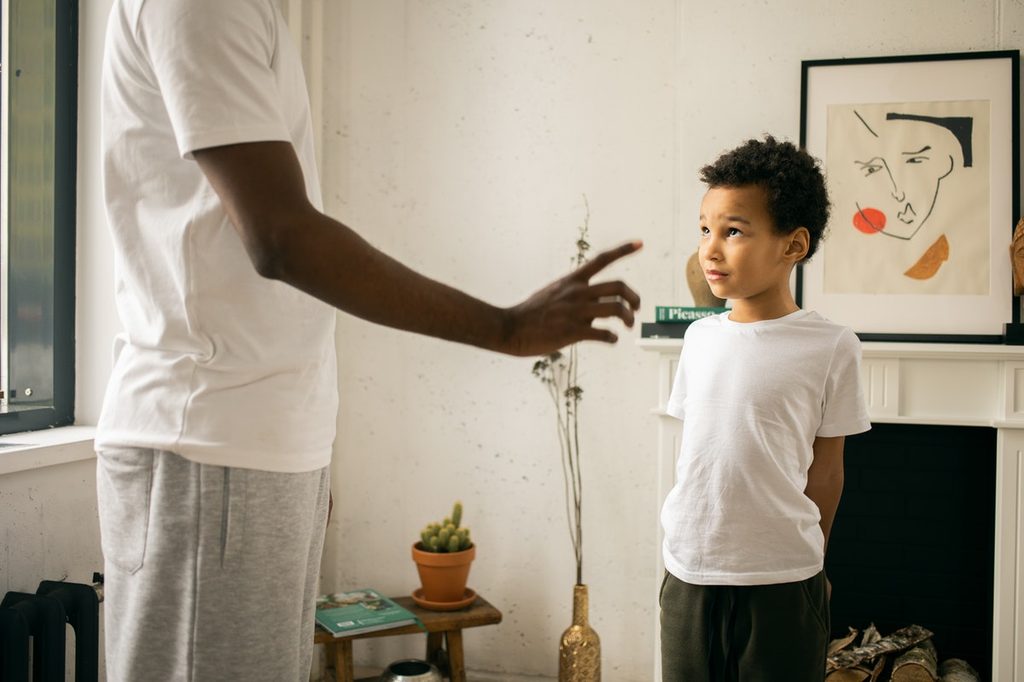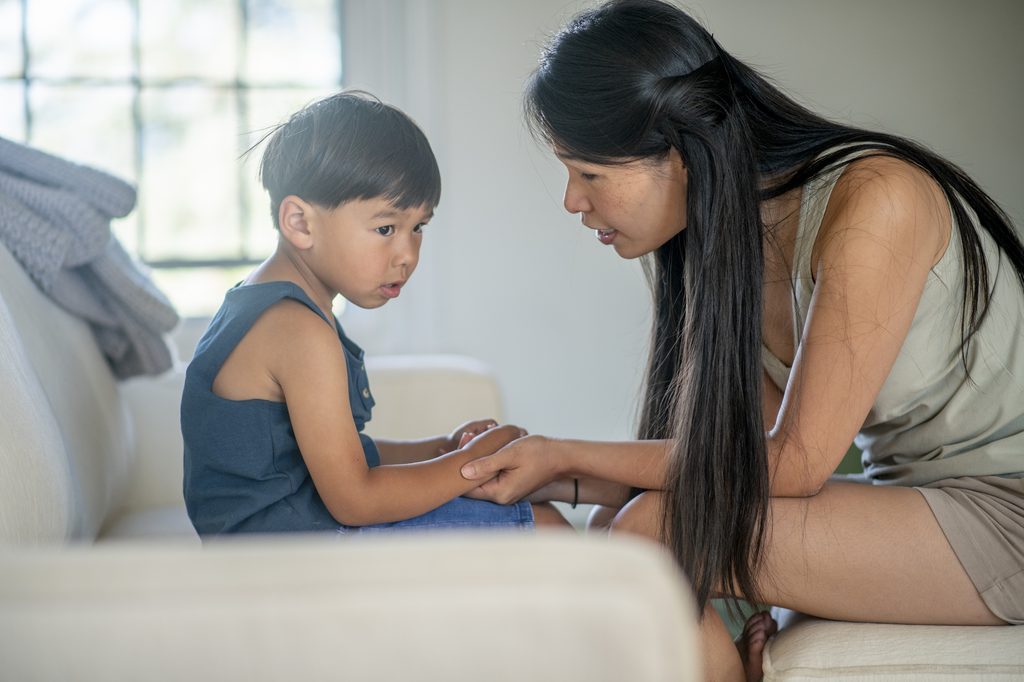
It doesn’t matter if you’re a seasoned parent or experiencing the joy of raising another human being for the first time, when you have a tween or teen at home, discipline poses a challenge. Because every child is different, what “worked” on one child may have little to no impact on the other. Or you may have a child who is testing the waters to see what they can get away with and doesn’t blink an eye at the slightest consequence.
Disciplining children often remains shrouded in mystery. Or does it have to? When a child doesn’t care about consequences, you can try to apply the following advice from the experts.

How do you discipline a child who doesn’t listen?
Every child will test the limits at some point. It’s part of learning the concept of cause and effect. However, should you deal with a headstrong child who doesn’t care about consequences? Worse yet, what do you do when the consequences don’t seem logical at all to the child, and you’re at a loss for words to explain the limits and why they exist?
Dr. Sheldon Zablow explains a strategy where the parent focuses on the behavior as a choice where the child is choosing the consequences based on their actions:
As a child psychiatrist, I teach a program called “Discipline by Choice.” The child, not the parent, chooses timeout because of the behaviors they have chosen. Depending on what has occurred, it might be quiet time in their room or timeout in the corner. If the child refuses to go to timeout, they have chosen to be physically held/restricted until they are compliant in doing so. When you implement a therapeutic hold, your message is, “As soon as you have control of your body to do what is asked, I will no longer need to hold you, the choice is yours.”
On the other hand, Dr. Kyle Pruett, a child psychiatrist at Goddard Systems, Inc., takes a slightly different approach where the parent listens to the child’s feedback before administering the consequences:
First, it’s important to show your child you’re listening to them. If children aren’t being heard, they won’t listen. Parents often want to manage their child’s behavior and forget to ask why they are upset. The temptation is to yell louder, but that is exactly the wrong thing to do. Instead, count to five, catch a breath, get on their level and ask what’s wrong before you discipline. Figure out a way to listen to them. This process takes time, so don’t expect it to work right away.

Be strategic
It’s important to make sure the punishment fits the crime when it comes to disciplining kids, even those who seem to not care about any form of punishment. Behavior analyst Christi Campbell suggests to Fatherly that often the reason kids don’t respond to discipline is that it isn’t related to the reason for the punishment.
“Often, parents think that isolating the child by sending them to their room will be effective. However, there are times when sending a child to his or her room only serves as a retreat from the chaos of the household, which is not always a punishment,” she told the magazine. She added that the punishment should have some relation to the offense and should also be immediate so the child knows exactly why they are being punished. She also advises parents to change tactics if their initial punishment doesn’t work.

What is the most psychologically damaging thing you can say to a child?
Just as listening and staying consistent are key qualities to maintain when your child doesn’t care about consequences, you also need to avoid going from one extreme to the other. For instance, Dr. Zablow states that “spanking or hitting” does the most damage because the consequence of the child’s action is inflicting pain or making the child feel bad until they comply with the parent’s wishes. In this situation, the lesson on good behavior and the concept of choices resulting in consequences are lost in the moment of shock when you strike your child.
Rather than explaining that your child’s choice prompted the natural result of the behavior, you’ve established a sense of authority where your child fears but doesn’t necessarily respect you. Plus, the lesson transforms into one of compliance, as opposed to critical thinking about choices, actions, and their effects.
Dr. Pruett says “indifference” causes the most damage along with corporal punishment. When a child tries to get a parent’s attention to the point of opting for negative attention, a reprimand, and nothing happens, that type of dynamic hurts in the long run. Unfortunately, it can spill into other relationships and situations. Basically, the child has learned that “bad” attention is better than no attention.

How to discipline a teenager who doesn’t care about consequences
Likewise, if you have a teen who doesn’t care about consequences, your patience might run a bit thin. However, taking the most punitive route imaginable can be counterproductive. As James Lehman, MSW mentions, you might consider focusing on the lesson that you wish for your child to learn, as opposed to zeroing in on the “attitude problem.” In other words, when you dole out a consequence, your teen might roll their eyes and sigh or give you some other melodramatic response.
Instead of calling out the demeanor, you can remind your teenager that the consequences will stick, and if the offense is committed again, then your kid can expect the same consequences. And, of course, you can avoid the lecture, and instead, discuss possible solutions for avoiding the offense in the future.
Although your strong-willed child might not seem to care about the consequences, in reality, they are watching closely for your reaction. When you stay calm, focus on the issue at hand instead of the facial expressions and gestures, and stick to the consequences, your child will figure out that certain behaviors won’t be tolerated. As maturity takes place and more of life’s lessons are learned, then your child will begin to realize that one choice — big or small — affects everyone.


